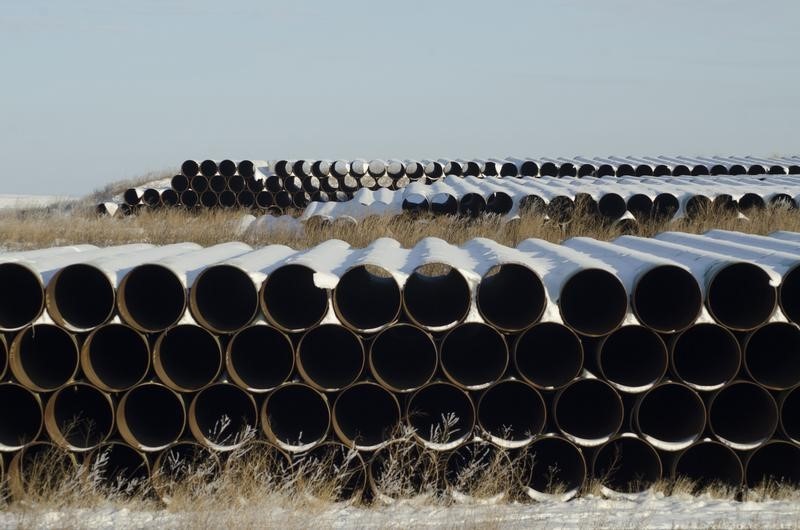By John Tilak
TORONTO, Sept 13 (Reuters) - Canadian energy companies will likely sell more exploration and production assets in the next several months, driven by weaker producers shoring up their balance sheets and the longer-term prospect of oil prices stabilizing, deal advisers said.
Mergers and acquisitions activity in the Canadian energy patch has waned since oil price began sliding more than two years ago. Many deals have involved so-called midstream assets such as pipelines, storage and processing facilities, which are more likely to offer steady cash flow.
The expected shift to the E&P, or upstream, segment, which tends to carry both higher risks and rewards, comes as companies that hoped to hold on to their prized assets are under more pressure than ever from lenders and bondholders.
"There are not as many buyers as there are sellers," said Janan Paskaran, partner at Torys LLP. "There's still a big pricing gap, and the only way for companies to get deals done is to let go of a crown jewel or one of their best assets."
The number of upstream energy deals in 2015 and so far in 2016 is below levels in 2014, data from Wood Mackenzie shows.
Large and mid-sized energy companies with the resources to buy assets, as well as private equity firms, have mostly shown restraint despite the oil price bloodbath. Some advisers say that will start to change.
"Energy producers are sitting on dry powder to deploy on E&P assets. The capital is waiting to be used," said Noralee Bradley, partner at Osler, Hoskin & Harcourt LLP.
She predicts more asset sales in the exploration and production area, compared with the midstream deals seen in recent months.
Last month Inter Pipeline Ltd IPL.TO agreed to acquire Williams Cos Inc's WMB.N Canadian midstream business. In July, CPPIB-backed Wolf Infrastructure signed a deal to buy Devon Energy (NYSE:DVN)'s DVN.N Access pipeline stake. could see more E&P transactions, although it's still a challenging environment with commodity prices," said a Canadian investment banker, speaking on condition of anonymity as he was not authorized to talk with the media.
Oil prices fell as much as 3 percent on Tuesday after both the world's consumers and producers revised forecasts that signaled the global crude glut will persist. O/R
But increased sales of exploration and production assets would indicate increasing confidence that the market is turning, noted Global Securities strategist Elvis Picardo.
